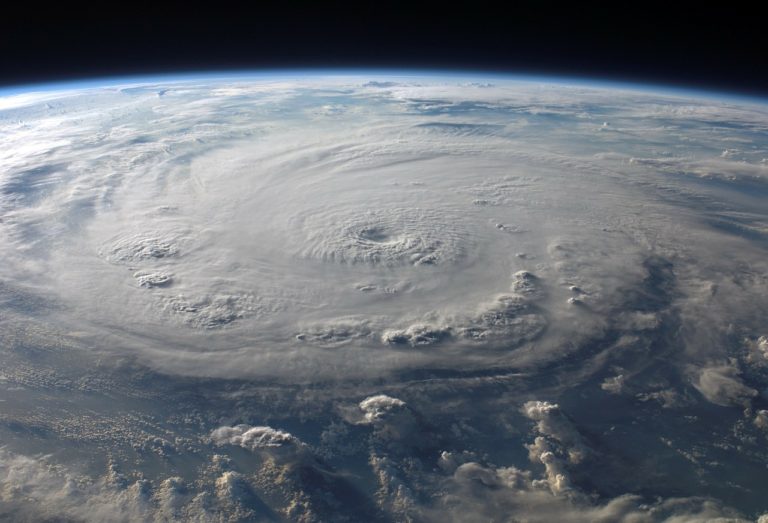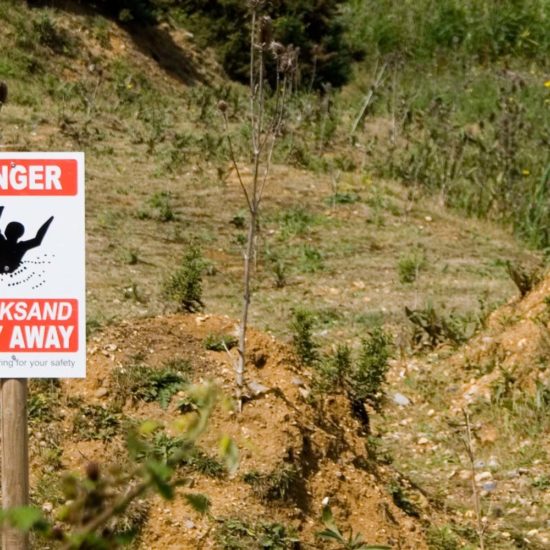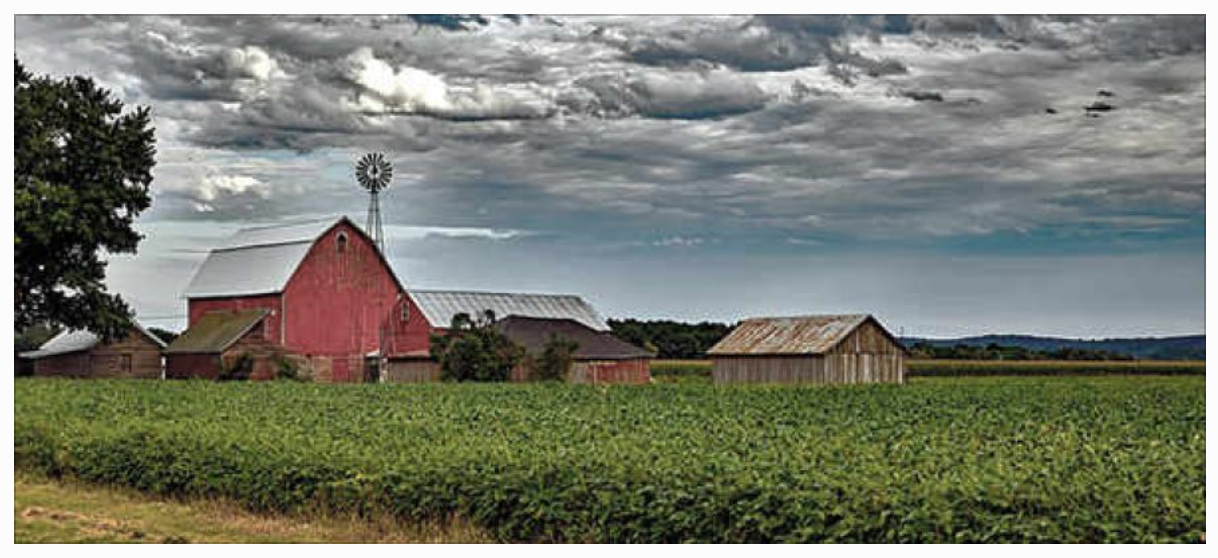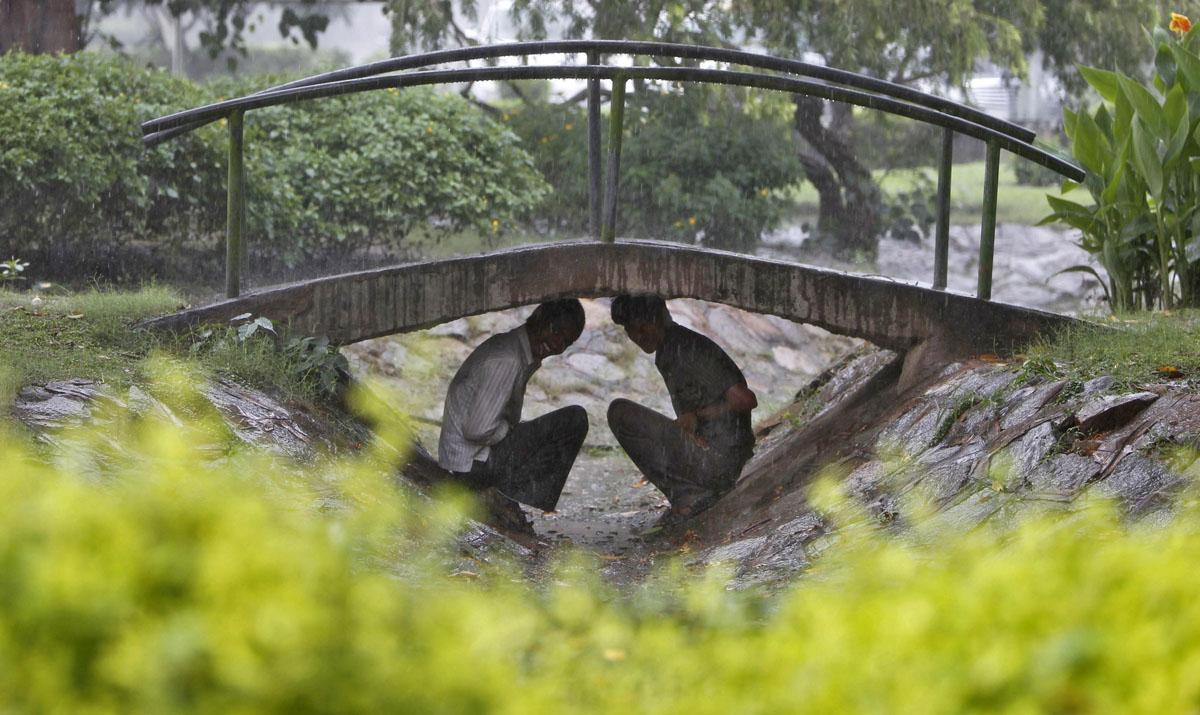
One of the most fascinating subjects I had to study for a captain’s license was weather forecasting. Back in the late 70s there was no Weather Channel with satellite photos or live radar images to rely on. We had to learn to forecast weather by observing the sky, our surroundings, and recording the change in the barometric pressure. Wind speed is deduced by how it affects objects around us. Offshore, we could look at the wave tops to judge the wind velocity. On land we observe tree branches, weeds, or grass.
When I first started studying weather forecasting, I had several good books on the subject with a pocket weather guide the easiest reference to carry around. A guide helps with determining the different cloud formations and the type weather that would be associated them. Periodically logging, every ½ to 1 hour, the changing barometric pressure in association with the clouds added another layer to the forecast. Next was the direction and speed of the wind. Subsequently, by recording the rise or fall of the barometric pressure over time, the wind direction and speed, and the cloud formations, a forecast would come together. It is important to note that low pressure systems will produce much more wind with unstable weather conditions, where high pressure systems produce milder, more unchanging conditions.

When I first started watching the Weather Channel, in the mid-90s, they focused totally on reporting the weather. If and when some storm or weather event was happening, then they sent people out into the field to cover it. Back in the studio, a meteorologist would analyze the conditions as the weather progressed. That was great for me, because I seeing what I had been studying for the past 20 years and witnessing just how far weather forecasting had advanced.
Today, as I begin my studies on prepping, I realize the importance of knowing some basic weather forecasting. After all, the worst natural disasters in America are weather related. Therefore, understanding what effects weather will have on most any disaster is of a primary concern.
Observing a wildfire, we predict how the wind and humidity affects the speed at which the fire spreads. When a chemical spill or explosion occurs, the weather will determine areas in danger from the fallout. Understanding basic weather principles helps when considering how heavy rainfall may affect a local dam or roadways. Other factors help us predict foggy conditions, hail, ice, or snow. A summer stable high pressure area tends to produce heat waves, which are the number one cause of weather related fatalities in the U.S. Here in Texas, we know all about heatwaves and droughts.

Predicting the effects of the changing weather around us, gives us the ability to prepare for it. Once the SHTF and we are left to our own instincts, the weather will be a major factor affecting our survival. Subsequently, here are some questions to think about.
- The Weather Channel will be able help until the electricity goes out, then what?
- Do you have an emergency weather radio; one with a hand crank or solar cells?
- What about weather (wx) broadcast on Short Wave, AM, or HAM radio?
- Where do you find the frequencies that broadcast weather info and at what time they transmit?
- What about a small handheld anemometer that also displays barometric pressure?
- A pocket guide to weather forecasting stored in your prepping gear?
All these questions are easily solvable.

As an example of local awareness, here along the Gulf Coast of Texas, we get tropical fronts in the Spring and Summer. The warm, humid Gulf air is drawn inland to the mid-Atlantic states. Cool fronts descend on this area as the jet stream comes south and the cool dry air meets the warm humid air and a front develops. Low pressure systems have a counter-clockwise rotation and high pressure rotate clockwise. Low pressure systems tend to move rapidly where high pressure will remain stationary for some extended period of time. High pressure tends to steer low pressure. Lifelong residents on the Gulf Coast know all about hurricanes and flooding and they both are associated with high and low pressure systems.
Topography also plays a huge part in how weather will affect a geographic location. Learn the local weather patterns for the different seasons of the year where you live or plan on heading when bugging out. Knowing the local weather patterns and having a basic understanding of the weather, you will be surprised at how easy you can forecast the weather. Discerning the wind speed and direction, cloud formations, and barometric pressure, you will have all the data you need at your figure tips. The data is not that difficult to collect.
Use your field guide to classify the clouds and for a reference. Purchase a small, portable, digital weather station to obtain wind speed and pressure data called an anemometer, which are readily available at a nominal price. Also, a compass to record wind direction, a good mechanical pencil, and a waterproof note pad to log readings every hour or 1/2 hour, depending on the situation. Thus, for a small investment, you can have the tools for forecasting the weather in your bug out bag. What I use cost less than a good hunting knife and takes up about the same space. I carry them when I go out shooting pictures or go to the beach just to practice. If you fish, a small weather station would be an excellent tool to forecast the quality of fishing and a good excuse to buy one.
Having some basic weather forecasting knowledge could be the difference in knowing when to seek shelter from a rapidly approaching front, or getting caught off guard trying to shelter after it hits. Weather related incidents cause the worst disasters in the U.S. Many times, just by having a basic understanding of the weather, how it is going to affect your community, and what you need to do for shelter, could save a lot of lives. Make the investment in inexpensive, easy to understanding weather forecasting tools and learn how to use them. It is an enjoyable way to gain one more step toward being better prepared when the grid goes down.


















